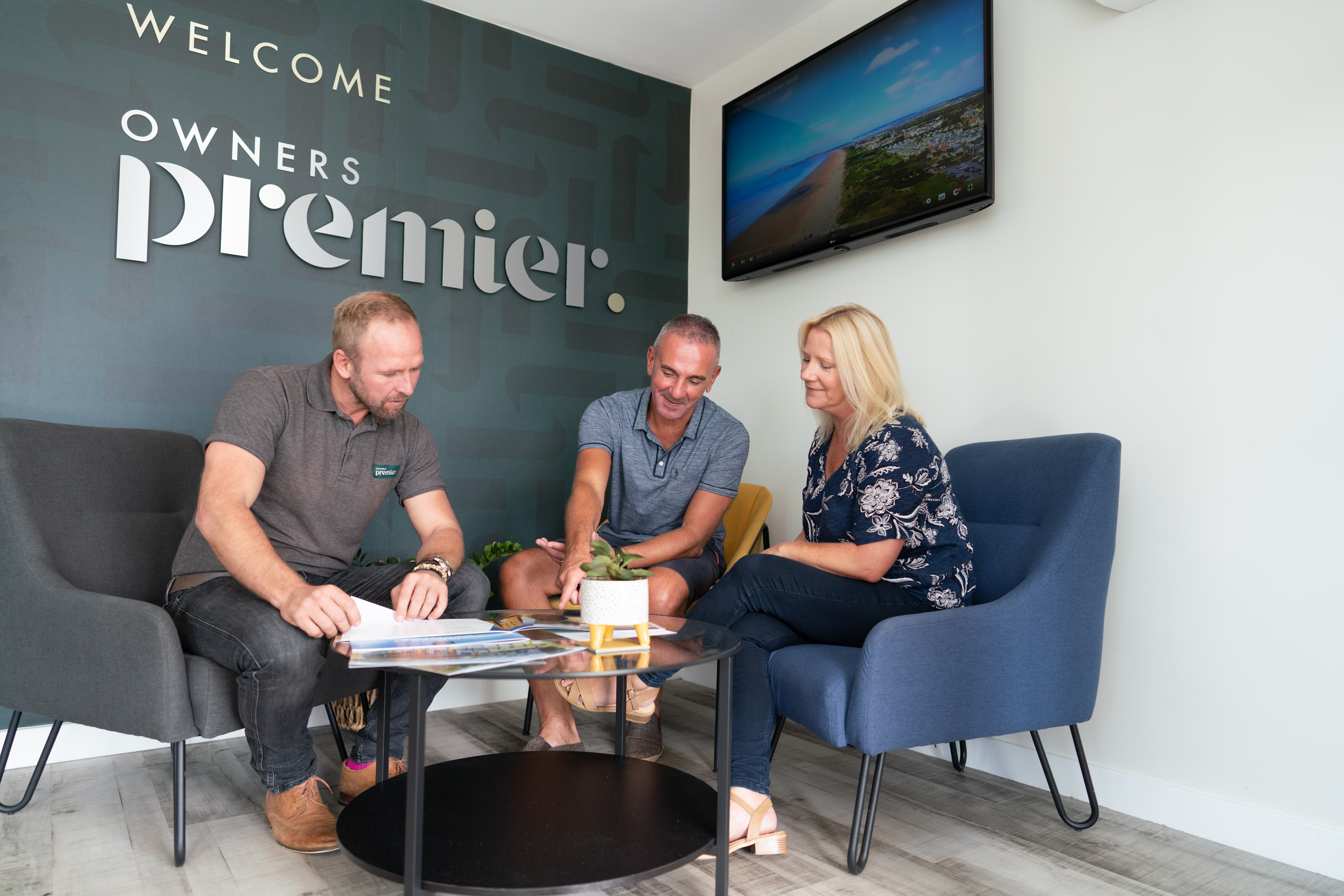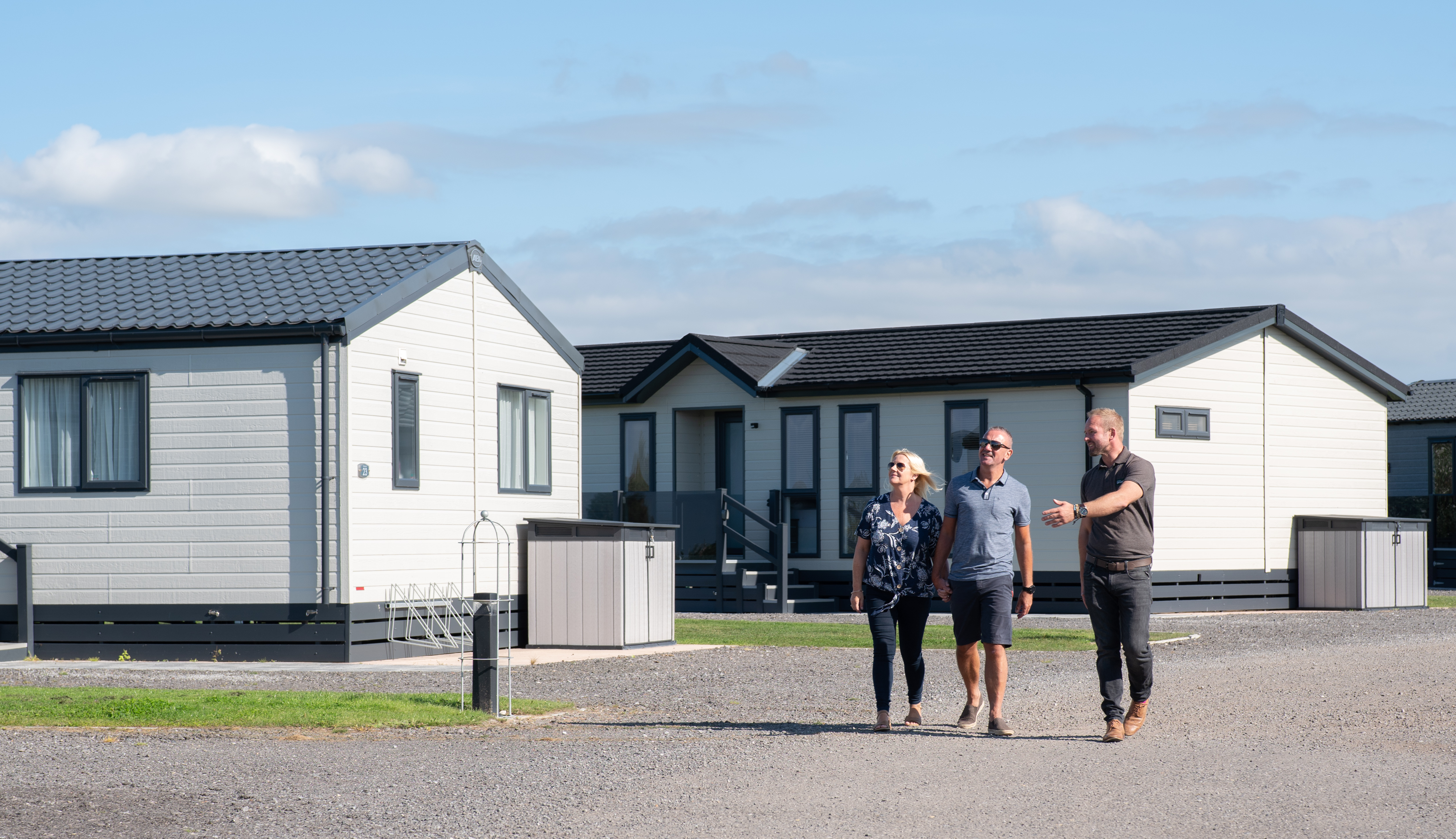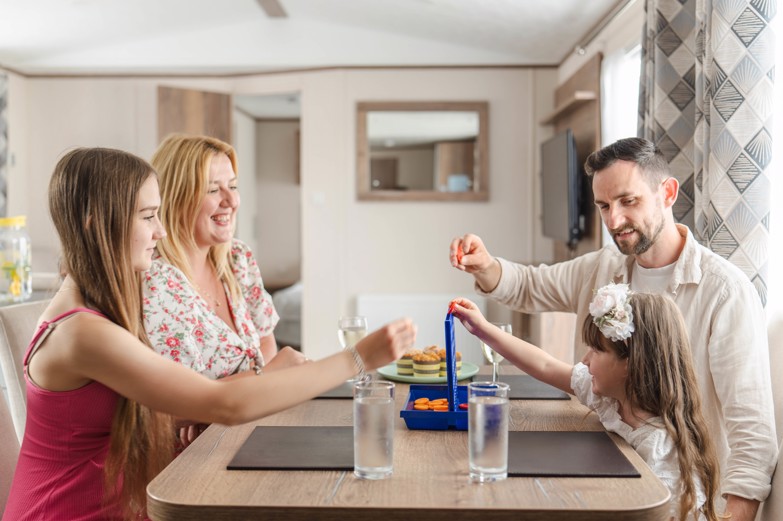
Buying a Holiday Home: The Ultimate Guide
Embarking on the journey of buying a holiday home? It's more than a dream; it's a complex purchase requiring keen insight.
Firstly, it is important to understand what is meant by the term “UK Holiday Home” as it can have different meanings depending on the context in which it is being discussed. In this article, we are referring to holiday lodges and static caravans, located in holiday parks within the UK.
Many grapple with choices over location, budget, and ownership types, often feeling overwhelmed by the multitude of considerations.
This article clarifies the process, offering essential advice on financial planning, property selection, and legal nuances. Discover key strategies to transform your dream into reality.
Pre-Purchase Considerations
When considering buying a holiday home, prospective buyers must weigh numerous factors to decide what is the best home away from home for them. Essential aspects include pinpointing the ideal location, comprehending various ownership constructs, and balancing the budget with size requirements.

Financial Planning
When purchasing a holiday home, prospective buyers should approach financial planning with diligence, assessing the anticipated costs and potential income to ensure that purchasing a holiday home is feasible and aligns with your financial goals.
Calculating Running Costs
Running costs for a holiday home will generally include regular expenditures such as utility bills, maintenance, site fees and repairs. Though static caravans are not subject to council tax or stamp duty there are still plenty of outgoings that need to be considered. Estimating these other expenses is essential and can be itemised as follows:
- Site Fees: All Holiday parks in the UK will require monthly or annual site fees to be paid, this usually covers the cost of the land which the static caravan sits on and the maintenance and upkeep of the park itself. Make sure to look into the details of what is covered in these costs as each park may vary slightly and so some may be better value than others.
- Utilities: Electricity, water, and gas should be calculated based on local rates and expected usage.
- Maintenance: Regular upkeep to avoid larger expenses later on, like gardening and cleaning services. Some holiday parks may include this in their site fees or offer it as an optional add on so make sure you get the details when looking around the different park sites.
- Repairs: Allocating funds annually for potential property wear and tear.
- Insurance: Holiday homes must be insured according to the terms and conditions set by the parks.
Exploring Financing and Mortgages
Securing a mortgage for a holiday home is not an option. When purchasing the home you will not purchase the land so interest rates, mortgage repayments and buy-to-let mortgage options are not relevant to your decision-making process. Ownership of a holiday home and/or a holiday letting property is very different from your standard bricks-and-mortar investment property.
Make sure you do your research into these differences before committing to purchase. Finance is often available via the holiday parks themselves, this differs from park to park so it is a detail that you must look in to when conducting your initial search for a holiday park that suits you. An example of a finance option from HRU Holiday Home Sales is as follows:
- Finance application is submitted and approved.
- The financial agreement is then made between yourselves and a trusted finance partner of the park.
- A minimum deposit of 20% is required in order to move forward with the agreement.
The purchase of a holiday home does not have tax implications in the same way as rental properties would as they are not considered viable as a permanent residence property therefore do not count as a second property in this respect.
Buying a holiday let is not subject to council tax nor does it require stamp duty to purchase. Owning a holiday home would also not affect the stamp duty you would pay should you purchase another bricks and mortar property whilst maintaining ownership of the holiday home.
However if you decide to let out the holiday home as a furnished holiday let then you must remember to allow for Income tax. Income generated from letting out the property needs to be declared and may be subject to income tax dependant on the amount you earn from this endeavour. In this instance, the holiday letting could be considered part of your business properties and would be exempt from inheritance tax.
Choosing the Right Property
When selecting a holiday home, it's important to carefully consider the type of property, the features and amenities it offers, and the location within a holiday park.

New vs Pre-Owned Homes
Purchasing a new holiday home offers the advantage of modern design and the latest in home technology, often accompanied by warranties and a lack of wear and tear. New homes can provide peace of mind with less initial maintenance but you must consider the purchase price. In contrast, pre-owned holiday homes can present a cost-effective option. They may come with a reduced price tag, but buyers should be diligent in inspecting for potential maintenance issues that could incur additional costs.
Essential Amenities and Features
A holiday home should cater to both comfort and functionality. Essential amenities may include:
- Utilities: Reliable water, electricity, and gas connections.
- Comfort: Effective heating systems for year-round enjoyment.
- Practicality: Adequate storage space for holiday gear and personal items.
- Luxury options: Such as a hot tub or a deck, can increase the enjoyment factor.
Prospective buyers must assess what features are crucial for their luxury and practical needs, balancing them against their budget.
Evaluating Holiday Parks and Models
Choosing the right holiday park is as important as the home itself. Consider the following:
- Location: Proximity to nearby attractions, natural beauty spots and popular tourist destinations as well as accessibility to transport links.
- Facilities: Availability of on-site amenities like a swimming pool, restaurants, and entertainment venues.
- Community: The social environment and demographics of park residents.
Finally, when evaluating different models of holiday homes, whether a spacious lodge or a compact static caravan, you should consider the quality of construction, layout, and the ability to customise. Each model offers distinct experiences and offer unique letting potential - from the lavishness of a premium lodge to the cosy convenience of a well-equipped caravan.
Embracing the Charm of Holiday Lodges
Holiday lodges offer a unique blend of comfort, convenience, and connection with nature, making them an increasingly popular choice for holiday home buyers. Beyond personal enjoyment, a holiday cottage can also present potential rental opportunities, appealing to holidaymakers seeking a cosy, home-like experience. Purchasing a holiday lodge means not just acquiring a property, but embracing a lifestyle that balances leisure, nature, and the comforts of home.
Management and Maintenance costs
Effective management and maintenance are essential for the longevity and success of a holiday home. Owners need to be vigilant in overseeing necessary repairs, securing appropriate insurance policies, and ensuring regular cleaning and upkeep.


Maximising Your Holiday Home - Rent It Out
Purchasing a holiday home and renting it out can be a financially rewarding endeavour. By generating extra income and enhancing the guest experience, you can ensure your property not only serves as a relaxing bolthole but also delivers as a solution to cover the annual fees associated with owning a holiday home simply by earning rental income.
Consider the benefits of renting the holiday let out for longer periods compared to short periods and vice versa to make the most of the holiday property and maximise the potential rental income. Longer periods of holiday lets would result in less time needed to manage bookings but may lead to a greater need for guest communication which can be time-consuming. Short stays may garner more rent for less undertaking on your part but remember to consider the turn around costs of a short-term holiday.
To turn a holiday home into a success, focusing on the guest experience is critical. High-quality fixtures and fittings create a sense of indulgence, while modern amenities ensure convenience. A well-equipped kitchen, stylish interiors, and comfort features such as reliable Wi-Fi can make a guest's stay memorable. This positive relaxation experience encourages repeat bookings and positive reviews, which can lead to increased occupancy rates.
Indulgences: Luxuries like quality linen and a well-stocked reading nook can make a difference.
Proximity: Ensuring easy access to local attractions enhances appeal.
Legal and Regulatory Considerations
Holiday properties involve several legal and regulatory considerations. Buyers should be aware of local council regulations specific to holiday homes and the broader legalities of ownership, including legal responsibilities associated with owning a holiday home on a holiday park.
Understanding Local Park Regulations
It is vital to check whether the holiday home is within a region where rental limitations exist or special conditions apply. For instance, some areas restrict the length of time a holiday home can be occupied during the year to manage local housing demands. Most holiday parks, including HRU, will also require proof of address, to ensure the home is not being used as a permanent residence.

Lifecycle of Ownership
The journey of owning a holiday home is marked by careful planning and thoughtful consideration of the future. You must balance the allure against the practicalities of long-term success and eventual exit strategies.
Also, consider the property in terms of personal use. Will you and your family benefit from owning the property and use it frequently enough that you not only have the potential for rental income when not in use by yourselves but that you also financially benefit from not being paying holidaymakers throughout the year. Contemplate if the holiday property is in the right location for you and your family as well as for paying holiday makers.
Is the property near the local shops, do you enjoy the local community, what are the popular locations you would visit frequently, if you can tick these boxes then you can ensure you are purchasing a furnished holiday let that you can also benefit from personally.
Exit Strategies
A solid exit strategy shapes the latter stage of holiday home ownership. Owners should be aware of the selling process or methods for transferring their investment when the time comes. Options may include selling the property outright or passing it on to family members.
- Resale: As mentioned, ensure you are familiar with the commission charged by the park when selling your holiday home and factor this in alongside the usual expenses associated with selling a property.
- Alternate Avenues: You do not have to sell the home at all, the lease of the land it sits on will come to an end and the property will therefore no longer be usable. Some parks require the removal of the home by you as the owner before the end of your agreement, others buy the home from you and there is often the option to extend the agreement on the land. Make sure you know the details of this specific to the park you choose so that when the time comes to exit your holiday home agreement you know the best option for you.
